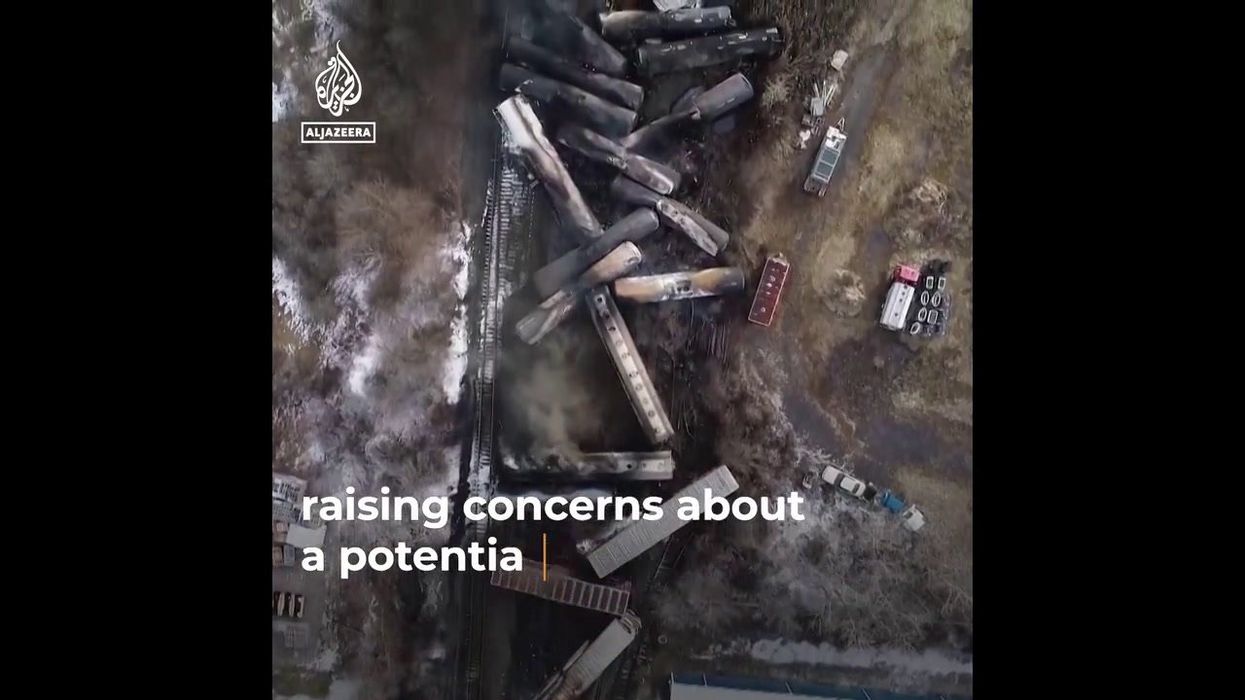The fallout from the Ohio train derailment has sparked ecological and health concerns in the area, with toxic chemicals spilling out into the air, surface soils, and surface water.
On 3 February, around 50 train cars derailed in the small town of East Palestine – 20 of which were carrying hazardous materials. These include vinyl chloride, butyl acrylate, ethylhexyl acrylate, and ethylene glycol monobutyl.
The chemicals burned for three days and residents within a 1-mile radius of the disaster were evacuated. Eventually, a controlled release and burn was carried out to prevent an explosion.
One of the chemicals included mono vinyl chloride (H2C=CHCl), which is used to produce polyvinyl chloride (PVC). PVC makes one of the world's most used plastics in piping, cables, bottles and credit cards.
Before being converted to PVC, vinyl chloride is much more of a hazard, as when under atmospheric pressure, it's much harder to contain in an accident due to its flammability.
Sign up for our free Indy100 weekly newsletter
"Vinyl chloride is stored and transported under pressure to liquefy it. Although transportation devices are designed to be impact and heat-resistant, these measures failed in this case," IFL Science reports.
"On release, mono vinyl chloride forms a cloud with a density around twice that of air, keeping it low to the ground and hindering dispersal. It will explode at ordinary temperatures over a wide range of concentrations in air. When it burns, one of the products is hydrogen chloride, which can react with water vapor in the atmosphere to produce acid rain."
The Environmental Protection Agency (EPA) calls vinyl chloride a Class A "known human carcinogen", whether that be through consuming the chemical by eating fish that have been bioaccumulated by the chemical or inhaling it during manufacturing.
Side effects from inhalation can include dizziness, headaches, and narcosis. It could also lead to more serious long-term effects such as cancer and liver damage.
Have your say in our news democracy. Click the upvote icon at the top of the page to help raise this article through the indy100 rankings.














